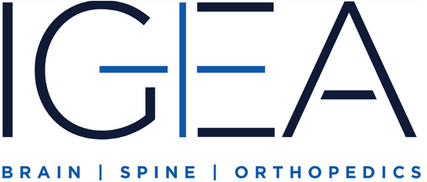TRIGEMINAL NEURALGIA TREATMENT IN NEW JERSEY & NEW YORK
IGEA Brain, Spine & Orthopedics provides trigeminal neuralgia treatment options in New Jersey and New York — helping patients find lasting relief. Trigeminal neuralgia is also known as Tic Douloureux. It is a disorder of the fifth cranial nerve (called the trigeminal nerve), which is one of the largest nerves in the head. The trigeminal nerve and its branches send impulses such as touch and pressure to the brain from the face and forehead, jaw and gums, and the area around the eyes. TN causes sudden, intense, electric-shock like episodes of pain in these areas.
The pain episodes usually last for several seconds, and sometimes repeat one after another. The disorder usually affects one side of the face. Women are more likely to be affected than men, and the vast majority of cases affect patients over the age of 50.
WHAT ARE SOME FOODS TO AVOID WITH TRIGEMINAL NEURALGIA?
Even with treatment, pain from trigeminal neuralgia can be triggered by anything that may stimulate the nerves that are responsible for all sensations in the face. Therefore, foods that cause a distinct sensation should be avoided. They can include:
- Black pepper
- Chili
- Hot sauce
- Mint
- Salsa
- Sour foods
- Sweet foods
WHAT TRIGGERS TRIGEMINAL NEURALGIA PAIN?
A number of everyday activities can trigger trigeminal neuralgia pain, including:
- Applying makeup
- Brushing teeth
- Drinking or chewing
- Face washing
- Laughing
- Shaving
- Smiling
- Standing in a breezy place or in air conditioning
- Talking
WHAT DOCTORS TREAT TRIGEMINAL NEURALGIA?
Trigeminal neuralgia may first be diagnosed and treated by a primary care physician and/or neurologist with a variety of pain medication. However, should those treatments fail, patients would be referred to a neurosurgeon to discuss other options.
CAN SHINGLES CAUSE TRIGEMINAL NEURALGIA?
Shingles can result in a complication known as postherpetic neuralgia (PHN), which affects the nerve fibers and skin, including the trigeminal nerve. Shingles is caused by the chickenpox virus that reactivates in the body later in life.
When a patient continues to experience extreme pain even after the bout of shingles is over, it is known as PHN.
WHAT IS THE RELATION BETWEEN TRIGEMINAL NEURALGIA AND MULTIPLE SCLEROSIS (MS)?
Multiple sclerosis (MS) is a disease in which the immune system attacks the protective covering around the nerves—including the trigeminal nerve—known as the myelin sheath. With MS, the myelin sheath eventually deteriorates, and the nerves themselves become permanently damaged.
Trigeminal neuralgia is a known but uncommon symptom of MS and typically appears a few years following the onset of MS. However, patients under the age of 40 who are diagnosed with trigeminal neuralgia should be tested for MS to rule it out as a possible cause.
HOW LONG DOES TRIGEMINAL NEURALGIA LAST?
There are two types of trigeminal neuralgia: the “classic” type is TN1 and the “atypical” form is known as TN2. With TN1, patients experience sudden, random bouts of burning or shock-like pain that can last from a few seconds to several hours. Patients with TN2 have a constant burning, stabbing or aching pain. Both types can also occur in the same patient at the same time.
CAN TRIGEMINAL NEURALGIA CAUSE EAR PAIN?
Though trigeminal neuralgia is typically classified by pain in the lower face and jaw, it can affect the nose, eyes, lips and ears as well.
SURGICAL TRIGEMINAL NEURALGIA TREATMENT OPTIONS IN NJ & NY
The most common surgical option is a microvascular decompression. The surgery involves a small incision behind the ear, followed by removal of a small part of the skull to create a “window” through which the surgeon can access the trigeminal nerve. At this point, any blood vessels putting pressure on the nerve are carefully separated from the nerve. The procedure has a high success rate, but, as with all surgical procedures carries some risks. Your doctor will carefully discuss these potential risks with you.
CONCLUSION
Trigeminal neuralgia is a very painful disorder. However, it is not fatal. Pain episodes tend to occur for a period, then stop, and then often recur again. Many patients experience relief with medications, and others receive relief from surgery. Contact us today to learn more about our trigeminal neuralgia treatment options in NJ and NY.

